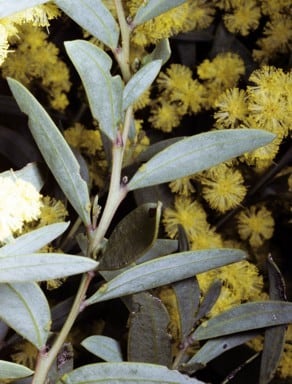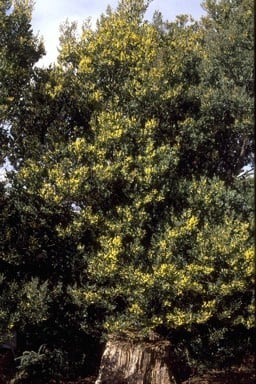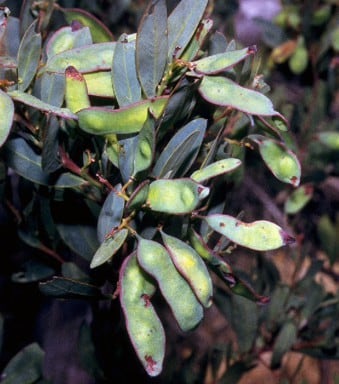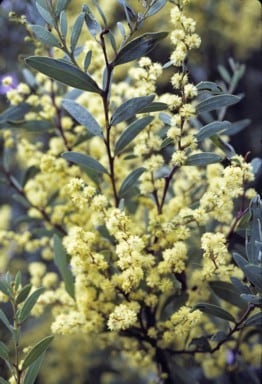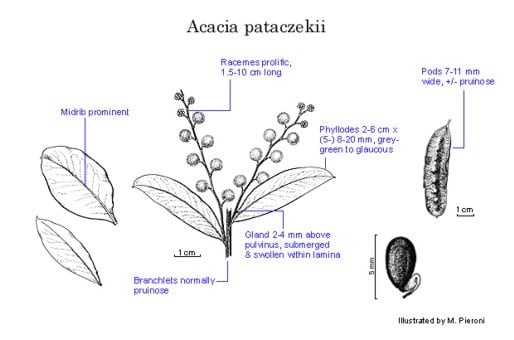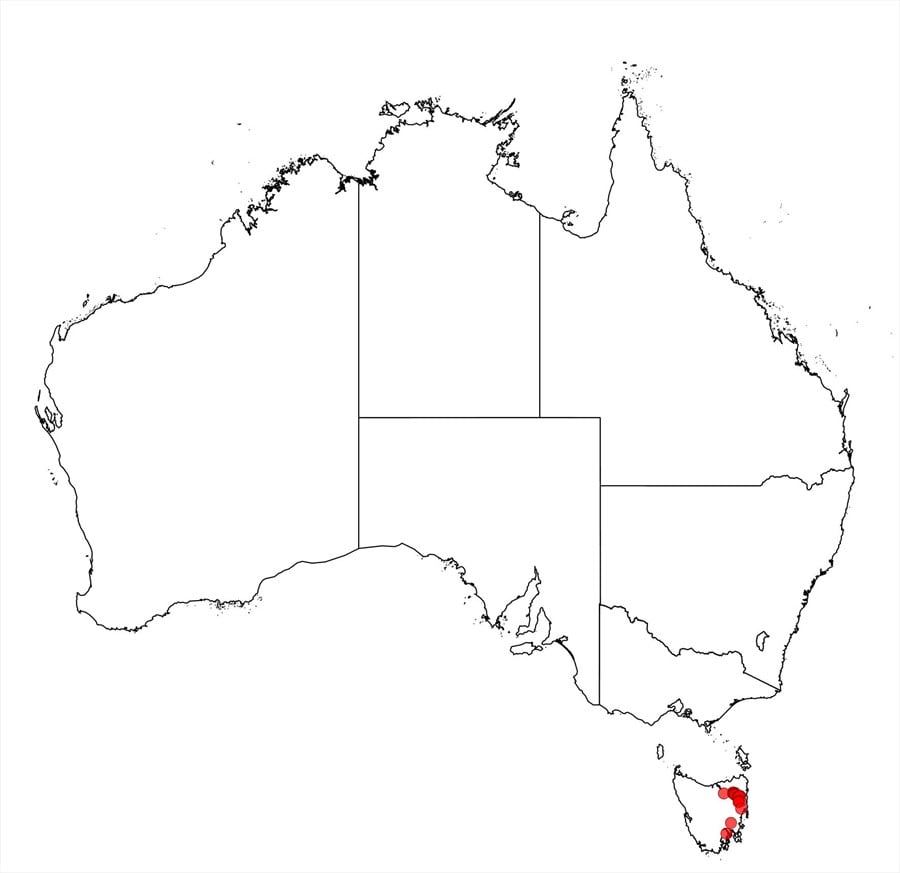Acacia pataczekii D.I.Morris
WATTLE
Acacias of Australia
Common Name
Wally’s or Pataczek’s Wattle
Family
Fabaceae
Distribution
Endemic in north-eastern Tas. where it occurs in several small populations in highland areas (at c. 1400 m) from Ben Nevis S to near Swansea.
Description
Shrub or tree 4–6 m high, apparently freely suckering following disturbance. Bark and branches pruinose. Branchlets angled at apices, dark reddish, normally lightly pruinose, glabrous. Phyllodes on raised stem-projections, slightly inequilateral, variable in shape and size, narrowly oblong-elliptic to oblanceolate, sometimes obovate, 2–6 cm long, (5–) 8–20 mm wide, l:w = (2–) 3–6, ±thinly coriaceous, grey-green to glaucous, glabrous; midrib and margins prominent; lateral nerves obscure; gland 2–4 mm above pulvinus otherwise as in A. kettlewelliae. Inflorescences racemose; raceme axes 1.5–10 cm long, glabrous and ±flexuose; peduncles 2–4 mm long, glabrous; heads globular, 10–15-flowered, bright lemon yellow. Flowers 5-merous; sepals united; ovary tomentulose. Pods narrowly oblong, 2.5–4.5 cm long, 7–11 mm wide, l:w = (2–) 3–6, firmly chartaceous, purplish brown, lightly pruinose, glabrous, dehiscing unilaterally. Seeds longitudinal, ovate to elliptic, 3.5–4 mm long, compressed, ±dull, black, arillate.
Habitat
Grows as an understorey in mixed Eucalyptus forest.
Specimens
Tas.: Tower Hill, near Fingal, F.E.Bienvenu 350 (CANB) and 5 Sept. 1976, W.M.Curtis & D.I.Morris (NSW); Roses Tier, Mar. 1986, M.Simmons s.n. (PERTH).
Notes
Possibly hybridises with A. dealbata (sect. Botrycephalae), both in cultivation (e.g. D.I.Morris 86344, HO, PERTH) and naturally (e.g. Tower Hill, Nov. 1976, W.Pataczek, NSW).
Most closely related to A. kettlewelliae which is usually distinguished especially by its more elongate phyllodes with the gland 5–15 mm above the pulvinus and pods 5–10 cm long.
Conservation
A detailed discussion of the species is given in A.J.J.Lynch, Conserv. Biol. & Managem. of 16 Rare or Threat. Fabaceae Species Tas. (ANPWS Endangered Species Program Project No. 4: 26–40, 1993).
FOA Reference
Data derived from Flora of Australia Volumes 11A (2001), 11B (2001) and 12 (1998), products of ABRS, ©Commonwealth of Australia
Author
B.R.Maslin
This identification key and fact sheets are available as a mobile application:
URL: https://apps.lucidcentral.org/wattle/
© Copyright 2018. All rights reserved.
